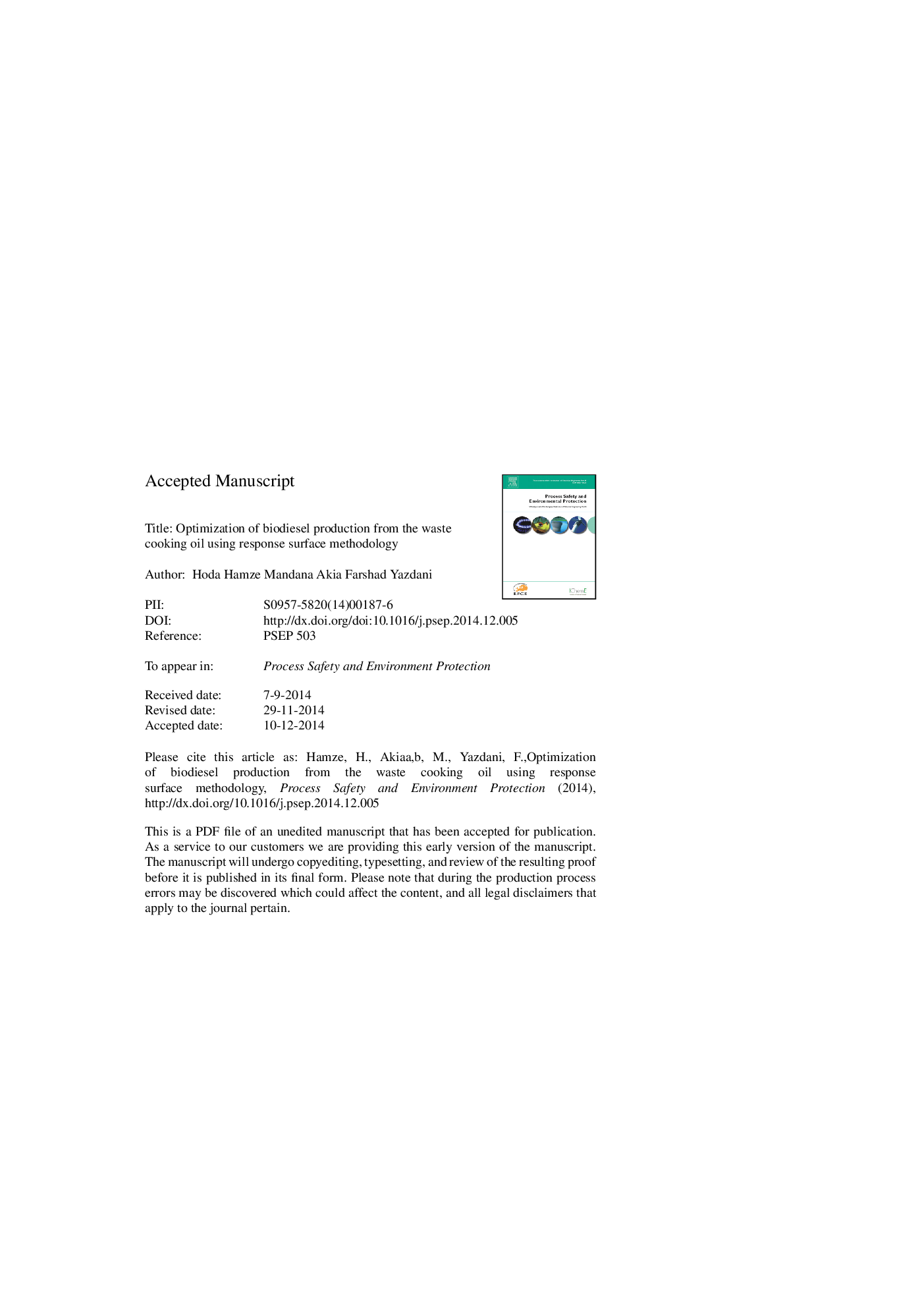| Article ID | Journal | Published Year | Pages | File Type |
|---|---|---|---|---|
| 6974456 | Process Safety and Environmental Protection | 2015 | 36 Pages |
Abstract
In this research, transesterification of the waste cooking oil has been studied. Response surface methodology (RSM) based on Box-Behnken design was used to investigate the effects of the main operating parameters, including the methanol to oil molar ratio, catalyst concentration, and reaction temperature, on the biodiesel yield. The results revealed that the catalyst concentration is the most important parameter. The maximum biodiesel yield under the optimized conditions was 99.38Â wt.%. Thermogravimetric analysis (TGA) was used for the determination of biodiesel conversion and the results were compared with that of gas chromatography (GC) analysis, showing a very small difference. Furthermore, an empirical quadratic equation has been presented to show the relation between biodiesel conversion and product viscosity.
Keywords
Related Topics
Physical Sciences and Engineering
Chemical Engineering
Chemical Health and Safety
Authors
Hoda Hamze, Mandana Akia, Farshad Yazdani,
